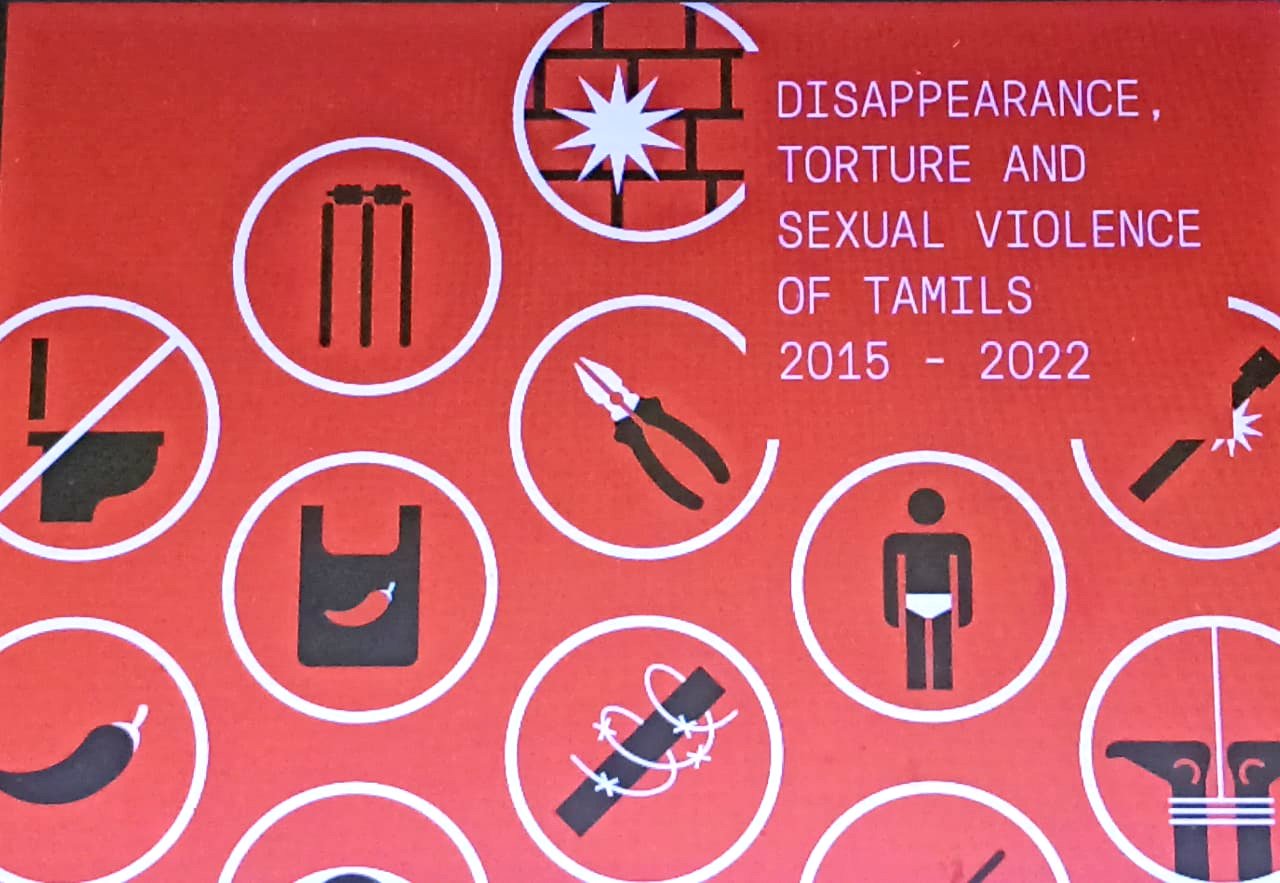'Truth and Justice' report: Systematic abuses against Tamils after the civil war
The document released by the International Truth and Justice Project reports the testimonies of 123 victims of detention, abuse and torture. During the conflict that ended in 2009 - between 80 and 100 thousand people died - both separatists and government officials were accused of violence. But the persecution of Tamils by the security forces continued unpunished even after the war was over.
Colombo (AsiaNews) - The report "Disappearance, Torture And Sexual Violence Of Tamils 2015-2022" by the International Truth and Justice Project (ITJP), based in London, was released yesterday: it documents alleged abuses in Sri Lanka, reporting testimonies of 123 Tamils who said they were beaten, burned, suffocated and sexually assaulted by Sri Lankan authorities between 2015 and 2022.
The ITJP stated in the document that Sri Lankan security forces kidnapped men and women from Tamil ethnic minority and tortured them even long after the end of the bloody civil war in the country.
The conflict - which lasted 26 years and ended in 2009 - pitted Tamil separatist insurgents against government forces.
Human rights organizations accuse both sides of committing abuses in this period in which 80,000 to 100,000 people died, according to United Nations estimates. The new report analyzes the statements of 109 men and 14 women aged between 20 and 39, picked up and detained by security forces. The detentions lasted from one day to a year and a half.
Half of 2022's detentions - 11 out of 24 - occurred after current President Ranil Wickremesinghe came to power, with the ousting of Gotabaia Rajapaksa in July 2022. The Tamil victims now all live outside Sri Lanka. The report says they were questioned about their links to the LTTE (Tamil Liberation Tigers), participation in protests and commemorations and involvement in Tamil political parties.
“Sri Lankan security forces act as if young Tamils peacefully exercising their political rights pose a threat to national security,” the report said. Many of the same methods of disappearance and torture conducted by security forces against surrendered LTTE fighters and the Tamil civilian population in the years immediately following the end of the war remain common to this day.” In 130 of the 139 detentions, interrogations involved torture.
The victims were severely beaten, asphyxiated with a polythene bag, burned with cigarettes or other heated materials, immersed in water and suspended from ropes. Sexual abuse was also frequently perpetrated, with 91 cases recorded.
Furthermore, in 55 of the 139 detentions, detainees were forced to sign a post-torture confession in a Sinhala language statement, which they could not understand. Some inmates escaped, while others were released. However, in 129 cases, they were blindfolded and returned to their families after paying a sum of money.
“Arbitrary and unlawful detentions between 2009 and 2015 were systemic and structurally entrenched,” the report continues. The worrying escalation of these practices “is unlikely to stop unless the international community puts more pressure on Sri Lanka to address security sector reform and root out the officials responsible,” said Yasmin Sooka, executive director of 'ITJP.
The report, on page 33, also cites a statement by Volker Türk, United Nations High Commissioner for Human Rights, who in March this year said: “I remain deeply concerned by the recurring and credible testimonies received by my office of abductions, unlawful detentions and torture, including sexual violence, by the Sri Lankan police and security forces, some of which are reported to have occurred in 2023, mainly in the north and east of the country.”
The report includes a number of recommendations, which should be implemented to end the culture of impunity currently practiced by the police and security forces: Remove from office the current Inspector General of Police (IGP), who has been recognized by a Sri Lankan court as being involved in torture.
And, equally, relieve from their duties the members of the supervisory body, the National Police Commission, who are said to be complicit in the disappearances that occurred at the time of the JVP (Popular Liberation Front).
07/02/2019 17:28
11/08/2017 20:05







.png)










